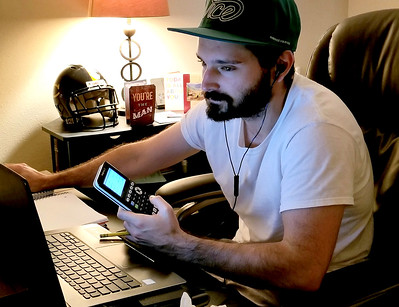Not every student likes online learning. In fact, 70% of college students would be just fine without ever taking another online class again. That’s a number worth paying attention to because the preference for in-person learning is going to be around for a while. (All those kiddies in K-12 “Zoom School?” They don’t like online learning either.)
The WCC Administration is in love with online learning. Prior to the pandemic, they were steadily increasing the number of online-only courses in the catalog. That strategy may artificially drive the number of online class enrollments up, but it doesn’t change the fact that most students prefer in-person learning.
It also doesn’t change the fact that most community college students don’t do well in online classes. The negative effect of online learning on these students is so profound that it actually increases the chance they’ll drop out of school. It also negatively impacts students’ learning and grades in subsequent classes. In short, for some community college students, online learning is damaging.
The desire to return to in-person learning is so strong that some students will choose in-person alternatives wherever they can find them. And that includes the 6 community college campuses within an hour’s drive of Ann Arbor. Continuing to push the “online learning” narrative will encourage WCC students to vote with their feet.
Coming back to campus for in-person learning
A recent survey of faculty and students at Portland Community College in Portland, OR confirmed this. PCC is the largest community college in Oregon, and enrolls about 60,000 students annually. The school has announced that it plans to remain mostly remote until January 2022. Local K-12 school districts, other community colleges and local universities plan to conduct classes mostly in-person.
This decision to pursue remote learning puts PCC at a disadvantage. As of yesterday, nearly 44% of Oregon’s population was fully vaccinated against COVID-19. In Multnomah County – home to Portland – more than two-thirds of all eligible adults have received at least one dose of a vaccine The relatively high vaccination rate combined with falling caseloads have made people anxious to return to normal.
PCC’s survey showed that 60% of faculty were comfortable with returning to the classroom to teach. They worry that they’re missing the opportunity to connect with the students. And they’re worried that opportunists will flood in to fill students’ demands. Those opportunists include other local community colleges and universities that offer in-person classes.
Washtenaw Community College is in much the same position. It is in driving distance of six other Michigan community colleges: Wayne County, Henry Ford, Schoolcraft, Lansing, Oakland and Monroe. I mention this because holding in-person classes is an opportunity of sorts following COVID-19. Those community colleges fastest to respond with in-person learning will reap the reward of having higher enrollment. That enrollment is likely to persist, too.
Beyond increased enrollment and persistence, most community college students prefer in-person learning and perform better academically. Returning to in-person learning for the fall could entice students who are simply exhausted by online learning back into the classroom. Being the last area community college to do so may come with long-term consequences.
Photo Credit: Bill Morson , via Flickr
























